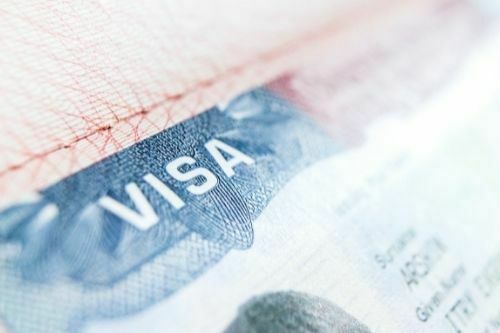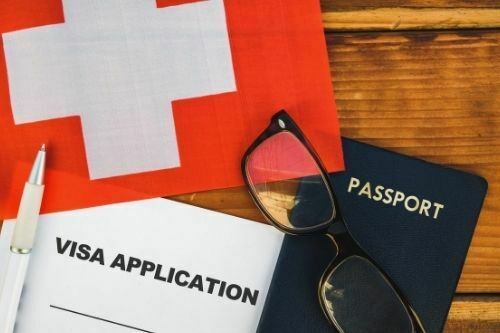Table of Contents
You’ve finalized the roadmap for your higher studies in Swiss. What next? Obtaining a Swiss student visa can be a process that most students may be unaware of.
Read on to know more about how to obtain a Swiss student visa successfully.
How to apply?
The criteria to apply for a student visa in Swiss may vary depending on your home country. Students from EFTA/EU nations do not require a visa to enter Switzerland, whereas students from outside these regions will be required to follow a different set of ways for the same. You can begin the Swiss student visa application process through your home country’s Swiss embassy or consulate. Fill out the application form and provide the supporting documents in French, German, or English.
Thereafter, you need to submit the following documents along with your swiss student visa application –
- Passport
- Financial proof
- Health-care Insurance
- Confirmation of courses
- Scholarship/loan proof
For those who are younger than 18 years of age
- If you’re under the age of 18, you will need your birth certificate and travel permission, or copies of your parents’ visas if they’ll be accompanying you to Switzerland.
- Application form (signed by both parents)
- Both parents’ certified ID/passport copies
If you’re traveling with someone other than your parents, you’ll additionally require:
- Passport of the accompanying person (original and copy)
- You will need a documented parental authorization to travel to Switzerland (signed by both parents)
- A family court order is also a necessity if just one parent has complete custody.
The complete processing of your student visa may take around 3 months. Students must register their identity documents, proof of enrollment, finance, and residence proof with the local registration office within fourteen days of arrival.
All overseas students applying for a visa to study in Switzerland must have health insurance. The EHI (European Health Insurance) Card automatically qualifies students from the EU for basic medical care.

Type of student visa
- The C visa is a short-term visa that permits the holder to stay in Switzerland for a limited time. This visa is ideal for up to three-month summer schools, seminars, and language schools.
- The D visa is a long-term visa that allows persons to study, work, or live in Switzerland. International students are awarded a Schengen visa that is valid for one year and can be extended.
Where do I apply?
After receiving your admission letter from your university, your first step should be to schedule an appointment with the Swiss embassy or consulate in your country.
Begin with the process at least 6 months before admission, as the duration of approval of a swiss student visa may turn out to be lengthy.
Short-stay visas take about 10-15 days to process, while long-stay visas take eight to ten weeks.
If your documents aren’t translated into French, German, or English, then you will need a certified translation for the same.
Language requirements
There are no special language requirements from the Swiss university. However, the following are the most common English language tests recognized by Swiss universities:
- Academic IELTS
- TOEFL iBT
- PTE Academic
Often the embassy may want to assess your language skills through a brief interview or possibly an oral and written exam at the consulate.
The Swiss delegation will further submit the admission application, along with supporting papers and a language competence exam, to the appropriate Cantonal Migration Authorities for approval.
Types of visa
Students from outside the EU/EFTA can apply for one of two types of visas based on their duration of stay:
- Short term visa – Schengen visa (less than 90 days)
If you want to take a short course or a language program, you will need a short-term visa (up to 90 days, a Schengen visa). You can submit the short-term visa online.
- Long term visa – National visa (beyond 90 days)
If you want to study full-time, a long-term visa is required. A long-term visa application must be submitted in person at a Swiss embassy or consulate in your country.
The Swiss student visa residence permit is valid for one year or the duration of your study. You can keep your permit till you finish your education. Remember to submit your renewal application at least two weeks before the expiration date!
What if your visa application is rejected?
- If your Swiss student visa application has been rejected, the best thing to do is to apply again, ensuring that the information provided is accurate and the documents complete. You need to be careful with the application process since the paid amount is non-refundable.
- It is also important to ensure that you do not submit original documents, as they won’t be returned once submitted.
Working after completing your studies
Students from the EFTA/EU are permitted to study and work in Switzerland for fifteen hours per week without the requirement of a work permit
Students from foreign countries are comparatively subjected to stricter rules. Only a few highly qualified people are eligible for work visas, while others must wait six months to take up employment after arriving in the nation.
As per the student visa work permit, after completing a degree in Switzerland, students may stay in the country for six months following graduation to seek work.
Look at the following points to know more about working in Swiss after completing your studies –
- Swiss work visa permission can be sought by firms that will hire you.
- After you complete your studies, you can seek part-time employment for 15 hours per week.
- A language proficiency exam and financial proof that you can support yourself in Switzerland during your stay may be necessary.
- The student visa work permit will be valid as long as you work for a Swiss company.
- If you wish to become a permanent Swiss resident, you must live there for 10 years.
Working while studying in Switzerland

As mentioned above, a foreign student can work up to 15 hours per week throughout the school year. You may work full time over the holidays. However, you need to notify your cantonal immigration office of your employment.
If you already have a Master’s degree from a foreign university and are working for a Swiss university or institute, you do not need to wait six months to begin work
What we have to say
- Switzerland provides everything a student needs to succeed in academics across disciplines.
- Full-time students enjoy fantastic opportunities to study and collaborate with some of the world’s brightest minds. However, leveraging these opportunities requires the candidate to complete the documentation process promptly.
- The visa application procedure is straightforward if the right steps are followed. Students should research their preferred university and apply for a student visa as soon as they get the confirmation via the acceptance letter.
Liked the blog? Share your thoughts with us!
Liked this blog? Read next: Studying in Ireland | Why it is the best decision you’ll ever make
FAQ’s
Q1. Are Swiss universities free?
Answer – No, there aren’t any universities in Swiss that are free of cost.
Q2. Is it important for students to attempt an IELTS exam to get admission to a Swiss university?
Answer – An IELTS score s not necessary for admission to Swiss University
Q3. How much does a Swiss visa cost?
Answer – A student visa approximately costs around 160 CHF.






